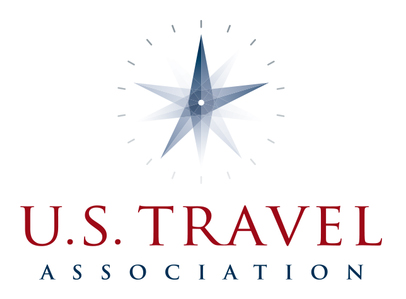- Details
- Category: Industry News
The meetings industry marked the annual Global Meetings Industry Day (GMID) on March 30, highlighting the value of trade shows, conferences, and face-to-face business meetings across the world and celebrating the planners, destination management companies, and other related professionals who make it happen. Multiple organizations dedicated to the advocacy of the meetings and travel industry held events in conjunction with the day, including Meeting Professionals International (MPI) and the US Travel Association (USTA), which launched the initiative several years ago. Using the hashtag #MeetingsMatter and #GMID2023, the social media efforts reached up to 10 million people worldwide, according to USTA.

 USTA President & GEO Geoff Freeman
USTA President & GEO Geoff Freeman
According to a fact sheet released by USTA, meetings and events in 2022 alone generated nearly $100 billion in travel spending in the US directly supporting 600,000 American jobs. But the data also show that it not only advantages travel and tourism, but also American businesses: For every dollar invested in business travel, US companies experience $5.90 ROI, according to an Oxford Economics study that followed 14 industries over two dozen years.
“Business leaders know the most persuasive communication doesn’t happen through a screen—it happens when you meet face to face,” said USTA President & CEO Geoff Freeman in a press release for the event. “Even in a tight economy, face-to-face meetings matter for businesses and workers.”

He added, “When you think about it, there is practically no industry sector that doesn’t rely on professional travel to advance its business or goals.”
While there is mostly positive news on the travel front, the sector has yet to recover fully to 2019—which is blamed on several factors including record inflation, businesses reining in on travel costs or preferring digital conferences, and the lagging unemployment in travel and hospitality jobs. Additionally, excessive visa wait times for first-time visitors have impacted inbound US travel.
Just ahead of the event, MPI released its Winter Meetings Outlook. Among its findings:
- Live-event attendance expectations remain near all-time highs; those indicating favorable virtual attendance expectations are the weakest we’ve seen and respondents citing “negative” virtual attendance projections remain near all-time highs.
- Overall business projections remain incredibly positive with only 5 percent of respondents expecting a negative near future; 37 percent of all respondents project business conditions will be more than 10 percent better. Although projections dipped between spring 2022 and summer 2022 outlooks—90 percent and 81 percent, respectively—that number has rebounded to 85 percent.
The full report can be accessed here.
USTA has put together a fact sheet to help businesses share the value that meetings, conventions, and group business travel bring to the global travel economy, which can be found here. The next Global Meetings Industry Day will be held April 11, 2024.
Visit ustravel.org and mpi.org for more information.
[04.04.23]
- Details
- Category: Industry News
 L to R: NELA President Brett Barenholtz of Above All/Boston Car, Andrew Tighe of RMA Chauffeured Transportation, and Michael Callahan of Able Limousine
L to R: NELA President Brett Barenholtz of Above All/Boston Car, Andrew Tighe of RMA Chauffeured Transportation, and Michael Callahan of Able Limousine
More than 50 members and guests assembled for 2023’s first quarterly meeting of the New England Livery Association (NELA). Held Tuesday, March 28, at Crowne Plaza Boston in Woburn, Mass., the dinner event was sponsored by Acton/SoCal Penske Professional Vehicles, Stellantis, and Great Bay Limousine. CD President Chris Weiss was in attendance and was invited to speak to the membership.
 L to R: CD President Chris Weiss, Richard Tessier of Great Bay Limousine, Jason Dornhoffer of United Private Car, and David Wolpert of Moonlight Limousine
L to R: CD President Chris Weiss, Richard Tessier of Great Bay Limousine, Jason Dornhoffer of United Private Car, and David Wolpert of Moonlight Limousine
Following a cocktail hour (sponsored by Above All Transportation, My Limousine Service, Great Bay Limousine, Leros Point to Point, and RMA) and dinner, the meeting was kicked off by NELA Executive Director Rick Szilagyi of Lexian Management, who thanked everyone for coming and pointed out that five NELA presidents (past and present) were in attendance. He made a special point of thanking his member committee, including Joe Puleo of Dav El/Boston Coach, Alicia Hayes of American Classic Limousine, Tina Benson of L.A. Limousine, and Brittni Bogar of All Points Limousine.
Then, current NELA President Brett Barenholtz of Above All Transportation/Boston Car Service took the podium to thank the NELA Board of Directors for their hard work in keeping the association active during the troubling past several years.
 More than 50 members and guests attended the NELA quarterly meeting
More than 50 members and guests attended the NELA quarterly meeting
Szilagyi presented a minor change to the bylaws recently approved by the Board of Directors, which created an Advisory Board for the association. It was ratified unanimously at the meeting.
“I am very honored to be the president of NELA,” said Barenholtz. “People always ask, ‘Why are you in that association, and is it worth it?’ And I say, ‘Only if you care about improving your own company’s business and value.’ NELA provides networking, advocacy, lobbying, continuing education, access to resources, new perspectives, professional development, getting your name out there, discounts, industry trends, philanthropy, staying informed, plus a whole lot more.”
 Bob Moody of Acton/SoCal Penske (left) and Ted Leppzer of Stellantis
Bob Moody of Acton/SoCal Penske (left) and Ted Leppzer of Stellantis
Next, Mike Hadley, assistant director of transportation operations from Boston Logan International Airport and friend of the association, provided an overview of airport news, including updates about the current construction being done in several terminals.
 L to R: CD President Chris Weiss, Alicia Hayes of American Classic Limousine, Britt Bogar of All Points Limousine, and Tina Benson of L.A. Limousine Service
L to R: CD President Chris Weiss, Alicia Hayes of American Classic Limousine, Britt Bogar of All Points Limousine, and Tina Benson of L.A. Limousine Service
Weiss then was invited to speak about the CD/NLA Show in Las Vegas this past March. After taking a minute to share his admiration for NELA as an organization, he talked about the record-breaking 2,300 attendees at the MGM Grand as well as the networking and educational opportunities available at the upcoming CD/NLA Executive Retreat in Nashville this June 4-6.
 NELA presidents, past and present. L to R: Joe Cardillo of Westminster Livery Consulting, Jason Dornhoffer of United Private Car, Mike Callahan of Able Limousine, Brett Barenholtz of Above All/Boston Car, and Larry White of Boston Chauffeur
NELA presidents, past and present. L to R: Joe Cardillo of Westminster Livery Consulting, Jason Dornhoffer of United Private Car, Mike Callahan of Able Limousine, Brett Barenholtz of Above All/Boston Car, and Larry White of Boston Chauffeur
More guest speakers were given some time at the podium, including Mitch Guralnick of Prevost (who also serves as executive director of the New England Bus Association). Bob Moody of Acton/SoCal Penske and Ted Leppzer of Stellantis were also on hand, bringing a new Wagoneer L for NELA members to check out and “kick the tires.” The vehicle has been met with rave reviews from operators.
Before the meeting concluded, prizes were raffled to the members, including a Yeti Cooler, Bose headphones, an assortment of Lindt chocolates, lottery tickets, and a 50/50. The raffle was sponsored by Center Insurance, Dav El/BostonCoach, Four Star Limousine, Prevost, and Transport the People.
Visit nelivery.org for more information.
[04.04.23]
- Details
- Category: Industry News
 The MLA welcomed more than 20 members and guests at their recent meeting
The MLA welcomed more than 20 members and guests at their recent meeting
The literally ship-shaped Captain James Seafood Palace was host to the Maryland Limousine Association (MLA) membership meeting on March 29. Twenty-five members and guests were in attendance for the afternoon event, including CD President Chris Weiss and Editor Rob Smentek. In addition to a healthy mix of new and veteran members, the MLA welcomed guest speakers from Madison Capital and the Baltimore County Department of Health.
MLA President Len Joseph from On the Town Limousines kicked off the busy agenda by having each attendee introduce themselves with a short elevator pitch. He then introduced Allan Levine and German Ruiz from Madison Capital, who discussed the financial services they offer to the luxury ground transportation industry. The pair was asked by Joseph to address the challenges they are currently seeing in the marketplace, which led to a talk about rising interest rates (currently at 8-12 percent).
 MLA Board Member Ray Gavino of Translogic Executive addresses the membership
MLA Board Member Ray Gavino of Translogic Executive addresses the membership
Next, Kayla Wright from the Baltimore County Department of Health, Bureau of Behavioral Health was invited to speak about the Safe and Sober Prom Pledge Program. This volunteer initiative encourages ground transportation companies to sign a pledge that they will protect minors from drugs and alcohol while in the vehicles. The MLA has long been a partner in this program, which has successfully promoted the industry as a safe means of transportation during the prom season. During her presentation, Wright shared some staggering statistics about drug and alcohol use among high school seniors.
After a short break for lunch, which allowed MLA members to network, Joseph provided a bit of “housekeeping” for the membership, including lot relocation at Baltimore Washington International (BWI) airport and PSC assessments. Also mentioned was a crackdown on “hack” operators at the airport, which have becoming increasingly brazen. MLA members were encouraged to photograph the plates and contact BWI police.
 MLA Board Members (L to R): Treasurer Michael Greene of A Platinum Plus Limousine, Board Member Ray Gavino of Translogic Executive, Secretary Joanna Fridinger of The Limo Lady, President Len Joseph of On the Town Limousines, and Board Member Anthony Shoats of The Franklin Chauffeur
MLA Board Members (L to R): Treasurer Michael Greene of A Platinum Plus Limousine, Board Member Ray Gavino of Translogic Executive, Secretary Joanna Fridinger of The Limo Lady, President Len Joseph of On the Town Limousines, and Board Member Anthony Shoats of The Franklin Chauffeur
Then Weiss was introduced to say a few words about the recent CD/NLA Show in Vegas as well as upcoming events.
“It’s great to see the MLA resuscitated,” he said. “I’ve had a relationship with this association for close to 30 years.”
Weiss enthusiastically discussed the record-breaking attendance at the Vegas show, and offered up a description of the programming for CD/NLA Executive Retreat in Nashville this June 4-6. He emphasized the intensive, high-level education and unique networking opportunities available during the event, not to mention the fun local flavor.

Following a brief conversation about Limo Anywhere, spearheaded by Deanna Joseph of On the Town Limousines, Board Member Ray Gavino of Translogic Executive spoke about the opportunities in nonemergency medical transportation.
Finally, Joseph concluded the meeting with some takeaway he received from Bruce Heinrich of PAX Training at the CD/NLA Vegas Show, namely “hire slowly, fire quickly.”
The next MLA meeting is scheduled for May 23 at a venue to be determined.
Visit mdlimoassoc.org for more information.
[04.03.23]

